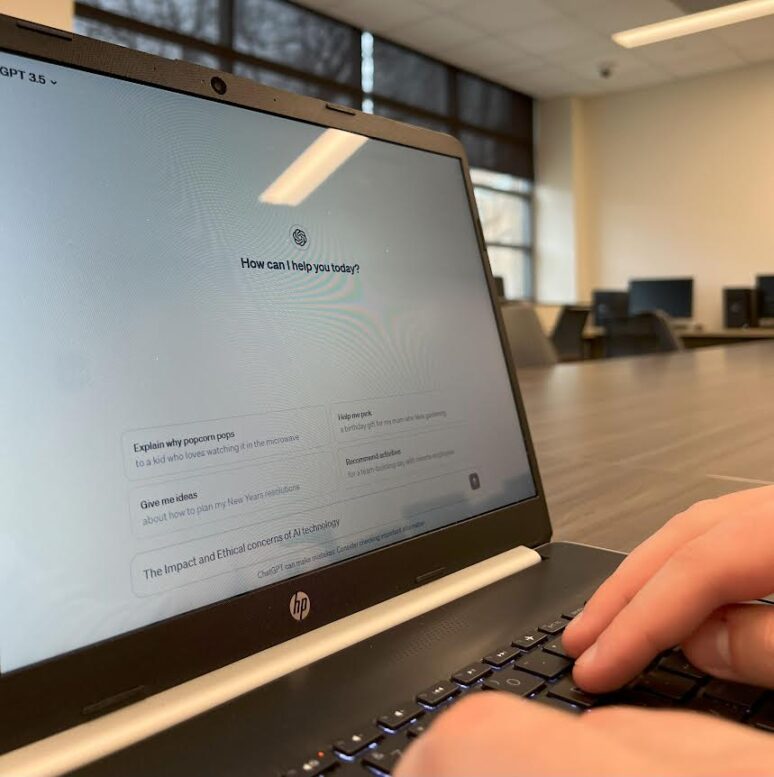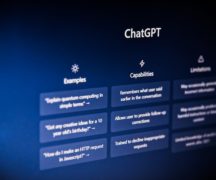By ZANE HARDISON
BGSU Student Contributor
Bowling Green State University is making efforts to use AI to benefit students as well as faculty due to artificial intelligence being on the rise.
The Center for Faculty Excellence has conducted higher-education workshops covering broad topics, such as how AI can ethically be used for educational purposes, and be used within the workplace.
“We’ve discussed some ethical considerations, such as the fact that some AI tools are cost prohibitive for students, but also the fact that students can use AI to assist with their learning, such as brainstorming ideas,” said Chelsea Chandler, the director of the Center for Faculty Excellence.
While some professors allow the use of AI in their classrooms, others may be against it. The rules about whether students are allowed to use it as a learning tool or if AI is prohibited in class must be clearly stated within the syllabus, according to Chandler.
“Professors need to have clear and transparent expectations within the course syllabi relating to AI. If faculty are starting to use AI to help them plan, or come up with learning objectives, then they should also be considering what they’re asking their students to do, or what not to do,” Chandler said.
Chandler has also hosted workshops, allowing faculty to sit down together and experiment with using AI and learn how to use it, as well as spot students using AI.
“We will explore the ways AI can be used for teaching, learning and how we can support students. We’re also digging into how to create ethical and responsible policies for our classrooms,” Chandler said.
Despite AI programs such as ChatGPT being around, instances of cheating and plagiarism aren’t on the rise because of AI. Cases of cheating have always been a thing, said Chandler.
While there is detection software that can detect the usage of AI, the technology is not completely accurate, according to BGSU English professor, Harland Jones.
“There are a few free ones I have tried, though I don’t think all of them are equally good, and I’m not sure if I would trust any of them fully,” Jones said.
Rather than relying on AI-detection software, Jones said that he can detect AI easily when reading through students’ essays, and that AI generated texts can feel overly abstract because they include academic buzzwords that most students don’t typically use.
Not only are faculty experimenting with AI, but so are students at BGSU, including third-year student Agatha Hickerson.
“I see AI as a great tool that can be used to help me academically. I’ve used it to come up with titles, fact checking, as well as to look things up. I think we need to start working with AI, rather than working against it in academia, because it will only get. better over time,” Hickerson said.
A BGSU student who wants to stay anonymous due to BGSU’s academic honesty policy, said that he uses ChatGPT as a way to format his essays, as well as creating second opinions without needing peer reviews.
“The AI will give me suggestions on my writing, rather than creating an essay fully on its own. My worry is that if I’m not careful with how I use AI, that my creative integrity could be questioned, and if I over-rely on ChatGPT then I may become less motivated to do the research myself,” said the BGSU student.
The student also uses AI to ask questions regarding his writing, such as what grade would the AI give his essay if the AI was a strict college professor.
Chandler also explained why students should refrain from using AI technology within foundational courses. “The use of AI in foundational courses could be very detrimental to your learning later down the road.”
Students need to understand for future classes the basic concepts taught at this level, and reliance on AI hinder that acquiring those tools.
As AI is an ever-changing form of technology, Hickerson said she believes that students and faculty need to start integrating AI into their work sooner, rather than later. “Students and professors are concerned about AI limiting learning, which is definitely valid. However, AI will only be more prominent in the coming years, and we all need to integrate it into our work in order to keep up.



